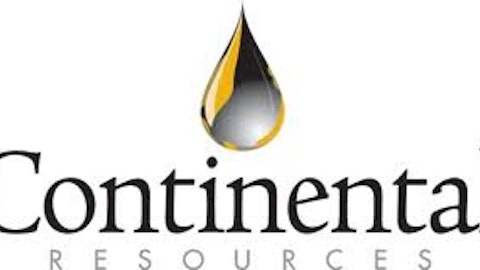The WTI crude oil price is currently $106 a barrel after having experienced a substantial increase in the past weeks. Energy prices were up 2.9% month-over-month in June. In this article, I will be analyzing three Exploration & Production, or E&P, companies based in Texas that could benefit from this trend in oil prices.
Risky vertical integration strategy?
Pioneer Natural Resources (NYSE:PXD) is an oil and gas exploration and production company based in Irving. Growth is led by Pioneer Natural Resources (NYSE:PXD)’s main properties: the Spraberry field, Eagle Ford Shale, and Barnett Shale Combo. Its cornerstone asset is the Spraberry oil field, accounting for more than 40% of production and the majority of its reserves.
For more than a decade, Pioneer Natural Resources (NYSE:PXD) has shown profitable, double-digit production activity without interruption and has consistently been ahead of the curve regarding services procurement and cost control. Management has implemented a vertical integration strategy that gives the company control over drilling rigs, sand, fracking equipment, and midstream elements. This provides a significant competitive advantage ensuring equipment and services availability, and helps preserve margins and returns. Nevertheless, this strategy is right when industry activity is glowing, but can be a drag on returns when operations fall.
As is the case with any E&P company, results for Pioneer Natural Resources (NYSE:PXD) are directly exposed to oil and gas price volatility and subject to market forces. Consequently, Pioneer uses derivative financial instruments to manage price risks associated with production. However, these hedging activities expose the company to the risk of financial loss and limit the benefit of a price increase of natural gas and oil.
At year-end 2012, Pioneer Natural Resources (NYSE:PXD) showed reserves were 1.1 billion barrels of oil equivalent, or boe, with net production of 156 Mboe per day. Since Pioneer Natural Resources (NYSE:PXD)’s stock is expected to perform in line with the broader market, I’d recommend holding on the firm at this time.
Geo-political risks embrace Apache’s strategy

Apache Corporation (NYSE:APA) has a large geographically-diversified reserve base and a well-balanced exposure to natural gas and crude oil. However, there is a limited upside potential for shares, taking into account production in international markets can be difficult to predict at times of political unrest. Additional risks include project timing delays due to geo-political instability, precisely risky in Egypt and Argentina, and regulatory uncertainty towards price controls and taxes that could eat into cash flow and profitability.
Apache Corporation (NYSE:APA) has high sensitivity to weather disruptions in the Gulf of Mexico and Australia. What’s more, Apache Corporation (NYSE:APA) sells natural gas in Western Australia under long-term, fixed-price contracts, many of which contain price escalation clauses based on the Australian CPI. This exposes the company to tighter margin.





